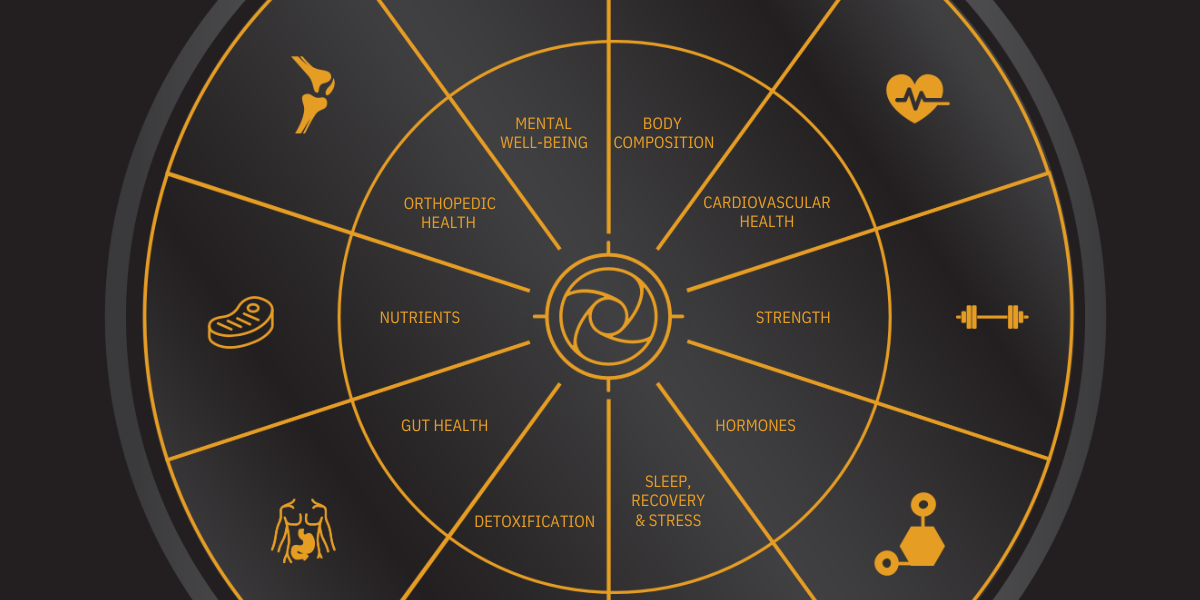Strategic Health Planning - How a Healthy Heart Can Fuel Fat Loss
When it comes to cardio workouts, there are generally two camps of thinking: one is that cardio training will make you lose your hard earned “gains”,...
.png?width=70&height=70&name=Stark_LogoMark%20(1).png)

Strength training, also called resistance training, is a powerful form of exercise that enhances muscle strength and endurance by working against a force. It's no wonder that over the years, countless studies have confirmed the positive impact of strength training on overall health, making it a vital component of physical activity. Unfortunately due to the demands of today's broken healthcare system, many doctors today receive very limited training in how to promote lifelong health in comparison to the number of hours spent on treating illnesses, resulting in resistance training often being overlooked or dismissed as a health solution. Let's delve into the scientific evidence supporting strength training's benefits and why every general practitioner should be prescribing it to their patients.
Resistance training is the key to lasting health, according to recent meta-analyses of ten studies. Just lifting a little weight can make a big difference. In fact, data shows that resistance training reduces all-cause mortality by 15%, cuts cardiovascular disease mortality by 19%, and lowers cancer mortality by 14%. This highlights the crucial role that strength training plays in boosting overall health and extending lifespan.
Aging is often tied to sarcopenia, which simply means a decrease in muscle mass, leading to frailty, reduced mobility, and falls. However, there are ways to reverse this process with resistance training - aka strength training. Not only can it build and maintain muscle mass, but it also helps improve overall physical function. Furthermore, strength training has been proven to reverse specific aging factors, such as mitochondrial dysfunction, which commonly leads to age-related muscle loss.
Aging can also result in bones becoming more fragile, increasing the risk of fractures and osteoporosis. However, one way to combat this is through strength training. Working out with weights can strengthen bones as well as muscles and tendons, reducing the risk and severity of falls, as well as improving overall well-being. Additionally, strength training has been shown to improve balance, psychological health, and sleep quality in older adults, making it an essential part of any healthy aging regimen.
Research shows that strength training can also enhance cognitive function, especially in elderly individuals with mild cognitive impairment and older women. Studies have demonstrated that resistance training improves short-term memory, dual-task performance, and cognitive performance. All of this highlights the importance of mental acuity at all ages. As such, it's essential for general practitioners to recommend strength training to their patients as a means of improving both cognitive function and quality of life.By engaging in resistance training, you can decrease cardiovascular disease, cancer, and all-cause mortality rates significantly. Moreover, it enhances bone health, balance, and cognitive function, and increases muscle mass. Every medical doctor treating patients that want to live longer and healthier lives should encourage them to prioritize resistance training to reap the vast health benefits. If this doesn't quite describe your GP, or your doctor only treats you when you are ill, don't blame them- most doctors mean well, they likely just haven't been provided the resources you need. That's all the more reason to come see our team of naturopathic doctors at Stark, who specialize in health optimization, for another opinion.

When it comes to cardio workouts, there are generally two camps of thinking: one is that cardio training will make you lose your hard earned “gains”,...

Are you feeling like your workouts are getting a bit easy? Especially if you have been feeling stuck in a rut, it could be that your workouts...

At Stark, we believe that true health encompasses far more than just physical fitness. It's about achieving a harmonious balance across all aspects...